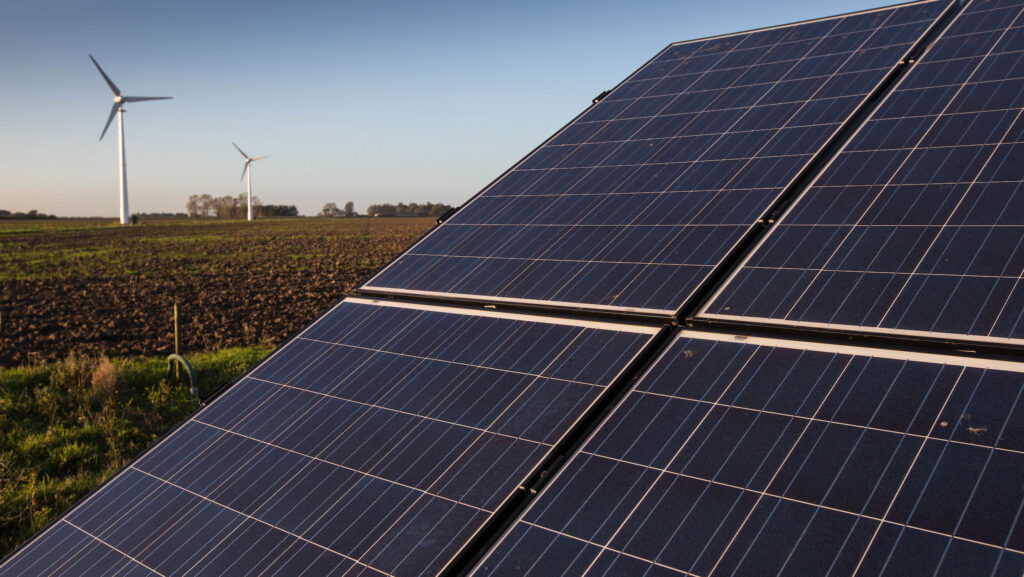How a landowner consortium can secure a better solar deal
 © Tim Scrivener
© Tim Scrivener Collaborating with neighbours could help farmers and landowners strengthen their negotiating position when looking to rent land to developers for large-scale solar projects.
Shropshire-based consultant Rob Paul of RP Rural & Energy says there remains significant activity among developers of large “transmission-scale” schemes.
These schemes are typically capable of generating several hundred megawatts of electricity across large areas of land. A 500MW scheme, for example, may require 800ha.
Developers often end up competing with each other to sign up landowners whenever grid capacity becomes available in a particular area, promising different things to different individuals, he says.
Equally, landowners can sometimes be wary about discussing offers made to them for fear of upsetting neighbours, and there can also be scope for misinformation to spread within local communities.
See also: Solar lease opportunities – what to consider
“But being proactive and forming a consortium with other local landowners at an early stage can help avoid this risk.
“It can put everyone in a much stronger negotiating position, potentially allowing higher rental incomes to be achieved for all members and give landowners a greater say in the design of the site,” says Rob.
Experience with multisite projects suggests there could be a 10-20% premium on potential rental income from taking a group approach compared with individual landowners and developers acting separately.
“There are some considerable economies of scale for developers,” he says.
“Not least is the fact that the group can use a single point of contact for professional advice and legal representation, rather than developers having to deal with multiple firms representing individual landowners
“This makes the whole process much easier and quicker.”
Timeliness is increasingly important given that there is a shakeup of the National Grid queuing system for new connections in 2025.
This will prioritise schemes making greatest progress with land deals, as well as planning, he adds
Where to start?
It can be hard to know where to start when considering committing land to any large-scale energy project, so the key is not to rush into signing anything, no matter how tempting the initial offer may be, says Rob.
“If you get approached by a developer, the first thing you should do is speak to a specialist about the offer to see what the next steps should be before agreeing to anything.”
For a collaborative approach to be successful, it is likely to require an independent person to head-up and facilitate the group.
Ideally, this should be someone with a good knowledge of the sector that can help identify the most suitable developer to work with and liaise with other landowners, he says.
It is usually possible to negotiate for the developer to cover the full costs of the landowner(s) taking advice, regardless of whether the project eventually goes ahead or not.
There are inevitable challenges in any collaborative project, and large-scale energy schemes are no exception, especially as location and proximity to grid connection play such an important role in project design.
For example, the landowner closest to the point of grid connection is most likely to host the substation and any additional battery storage, which commands a higher rental income than solar panels alone.
The base rental for battery storage is typically about £1,500-£2,000/MW (with about 62MW/ha), while the base rental for panel land is from £2,500/ha upwards.
“In an ideal world, it would be lovely to think all rental income could be divided equally among the whole group, but that’s unlikely to happen in practice.
“There may, however, be scope to share an element of it, such as by capping battery rents and increasing solar rents, but that really comes down to a discussion among all involved and may be difficult to agree upon.”
10 benefits of collaboration
- Enables landowners to be proactive when choosing a developer to work with
- Reduces likelihood of miscommunication and misinformation
- Economies of scale should be reflected in higher rents and better terms
- Developers like the prospect of progressing deals quickly
- Single points of contact for professional advice and legal representation are also attractive
- Improved option and lease terms for all
- All members have shared vested interest in success
- The group has more say in where panels are sited, because of the scale of the area involved
- Consistent/standardised lease terms for all, with no one missing out
- Improved chances of the scheme as a whole succeeding
